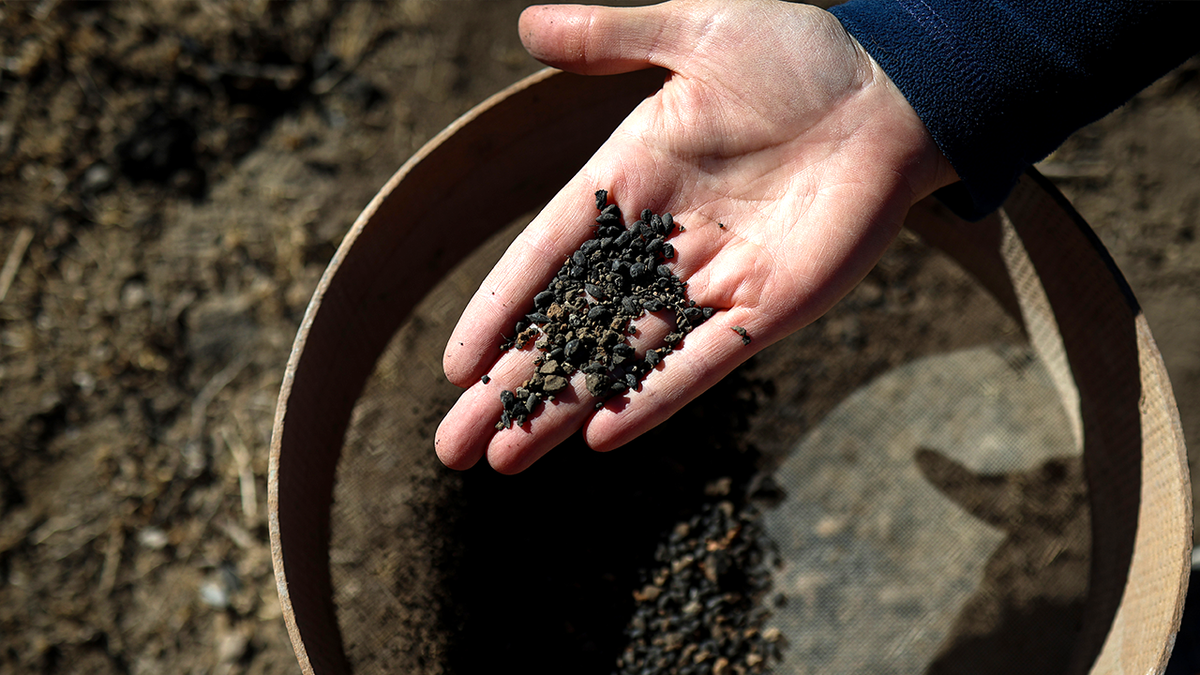
NEWYou can now listen to Fox News articles!
Ancient barley grains dating back 5,000 years were recently unearthed in Turkey — preserved only because they were burned.
The Anadolu Agency (AA), a state-run outlet in Ankara, reported the discovery on Nov. 11. The grains were found during an excavation in the eastern Turkish province of Van, at the Iremir Mound archaeological site.
The seeds date back to the Early Bronze Age and were uncovered alongside the remains of an ancient kitchen area. Archaeologists spotted the kernels in and around a broken jar, though officials do not yet know the circumstances of the fire or when it took place.
2,000-YEAR-OLD ROMAN RECIPES BROUGHT BACK TO LIFE — HERE’S WHAT THEY ACTUALLY TASTE LIKE
Experts also found grinding stones and pottery at the site — along with small cattle bones.
Excavation leader Hanifi Biber told AA the findings may indicate the site was “an important agricultural center.”

Burned barley grains dating back 5,000 years were unearthed in eastern Turkey’s Van Province. The grains were preserved by fire. (Ali Celik/Anadolu via Getty Images)
He added that the remains of a building — likely a warehouse — were also uncovered near the mound, along with other grinding stones, tools made of bone, and cutting and piercing tools made of obsidian.
CLICK HERE TO SIGN UP FOR OUR LIFESTYLE NEWSLETTER
“The results we obtained are very important, as they provide information that will shed light on the history of the bottom of Lake Van in general and the Gurpinar Plain in particular,” he said.

Experts uncovered tools made of bone and obsidian during the same excavation that revealed the ancient grains. (Ali Celik/Anadolu via Getty Images)
Biber added, “During the environmental cleaning of the warehouse space we opened in 2023, we found a kiln and pots adjacent to the north wall of the space. This is very important for us, as it has been preserved in situ.”
CLICK HERE FOR MORE LIFESTYLE STORIES
Eight unique layers have been identified in the mound, all from different periods, said the archaeologist.
The team also found evidence of extensive cattle breeding, along with remains of wild goat, red deer and bear.
It is the oldest-known settlement in the region.
Archaeologist Hakan Yilmaz told AA the team also found evidence of extensive cattle breeding, along with remains of wild goat, red deer and bear — all shedding light on the ancient agriculture industry.

“We evaluate the pottery, grinding stones and barley in each layer,” an archaeologist said. (Ali Celik/Anadolu via Getty Images)
“We evaluate the pottery, grinding stones and barley in each layer,” Yilmaz said. “By descending the layers, we will determine how this density is.”
TEST YOURSELF WITH OUR LATEST LIFESTYLE QUIZ
He added, “Excavations are generally carried out in castles [from the Kingdom of Urartu] and necropolises in the region, but the earliest settlement excavation in this geography is carried out here.”
The discovery comes as Turkey has been the setting of a few other fascinating food-related archaeology finds in recent years.

Archaeologists unearthed grinding stones, pottery and small cattle bones alongside the ancient grains in Van Province. (Ali Celik/Anadolu via Getty Images)
Earlier this year, archaeologists announced they’d found a 5,000-year-old bread loaf baked — and burned — during Turkey’s Bronze Age.
CLICK HERE TO GET THE FOX NEWS APP
In October, officials from the Karaman Governorship announced the discovery of a remarkable 1,200-year-old carbonized loaf of bread bearing a depiction of Jesus Christ.
Subscribe to George Magazine and unlock exclusive bonuses. Your subscription now includes a free crypto essentials guide and three premium downloadable images. These images are perfect for personal use as desktop or mobile backgrounds, with thumbnail previews shown below.




Discount Applied Successfully!
Your savings have been added to the cart.